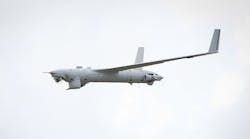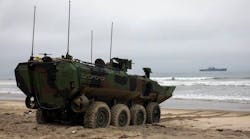Islamic militants backed by al-Qaida have captured Mosul in Northern Iraq, the nation's second-largest city, as well as Tikrit, the former home town of Saddam Hussein. Now they're poised to march on the capital of Baghdad. With Iraqi government soldiers fleeing and throwing down their arms, there's little today standing between Islamic rebels and a complete takeover of Iraq.
I wouldn't be surprised to see Baghdad fall by next week, and perhaps earlier. It's as if a decade of U.S. military presence in that country -- not to mention 4,487 American soldiers killed and 32,226 wounded in Iraq between 2003 and 2012 -- never even happened.
Here's the biggest unfolding irony of all. U.S. forces invaded Iraq in 2003 presumably to punish Saddam Hussein and his regime for their suspected support of the al-Qaida terrorist attacks on the Twin Towers in New York on 9/11. Now al-Qaida-backed rebels are poised to take control of all Iraq.
Remind me again why the U.S. government spent thousands of American lives and billions of dollars over a decade fighting in Iraq. At this stage it seems like such a waste, and American military personnel who served in that country must be heartily disgusted.
What were they fighting and sacrificing for? Why did so many of their friends get killed and wounded? As of now it would seem to be for nothing.
For historians and for those of us who lived through the 1960s and '70s there is a growing sense of bitter deja vu.
On 10 March 1975 the North Vietnamese army and Viet Cong fighters launched a spring offensive. While U.S. intelligence suggested that South Vietnam forces could hold out at least for the season and for as long as a year, Hue and Da Nang fell to the attackers before the end of that month.
Related: U.S. commanders assess technological lessons learned of Gulf War II
U.S. military forces had been pulled out of Vietnam two years earlier after more than 10 years of warfare in which 2.59 million U.S. military personnel served, 58,169 were killed, and 304,000 wounded. Without direct U.S. military support, the South Vietnam military couldn't hold off the attackers.
After Hue and Da Nang fell, floods of refugees fled from the fighting, as South Vietnam military resistance quickly disintegrated. By 9 April the attackers had reached the South Vietnam capital of Saigon. The city fell on 30 April 1975 after a frantic helicopter evacuation of U.S. and South Vietnamese citizens.
blog continues below
As that last helicopter lifted off the roof of the U.S. embassy in Saigon during the evacuation called Operation Frequent Wind, many of those 2.59 million U.S. servicemen who had been in Vietnam must have felt a lot like Iraq veterans must feel today: what was it all for?
Should we have been in Vietnam and Iraq at all? Those academic questions are best addressed elsewhere. What we see today is a monumental amount of American blood and treasure wasted over the last 50 years. We've seen military interventions begun with optimism and ending with defeat and disgrace.
Related: For those to whom we owe thanks
My heart goes out today to the U.S. veterans who served in Iraq, and in Vietnam before them. They gave so much, sometimes even their lives, and the tolls on individuals and families is immeasurable.
As U.S. forces entered Iraq in 2003 and for a good while afterward there was a spirit that U.S. military leaders and warfighters, this time, wouldn't let another Vietnam happen. Well, here we are.
Perhaps it's too early to start talking about the lessons learned from Iraq. Here are a few observations. First, the U.S. government is really, really bad at nation building. I'm hoping the debacles of Vietnam and Iraq have cured us of that permanently.
Second, you can't win the hearts and minds of people who don't want their hearts and minds changed. Contrary to our best intentions, democracy isn't always a cure for the ills of nations. American values are worth fighting for, but the fighting should stop short of imposing our values on others. Worthy as the task might seem, the last 50 years have shown us that it simply doesn't work.
I could go on, but you get the idea. It's all so sad, frustrating, and disillusioning to see such human effort and monetary expense go for naught. So let's all take a deep breath, and resolve -- once again -- that we'll learn some meaningful lessons from these experiences.



